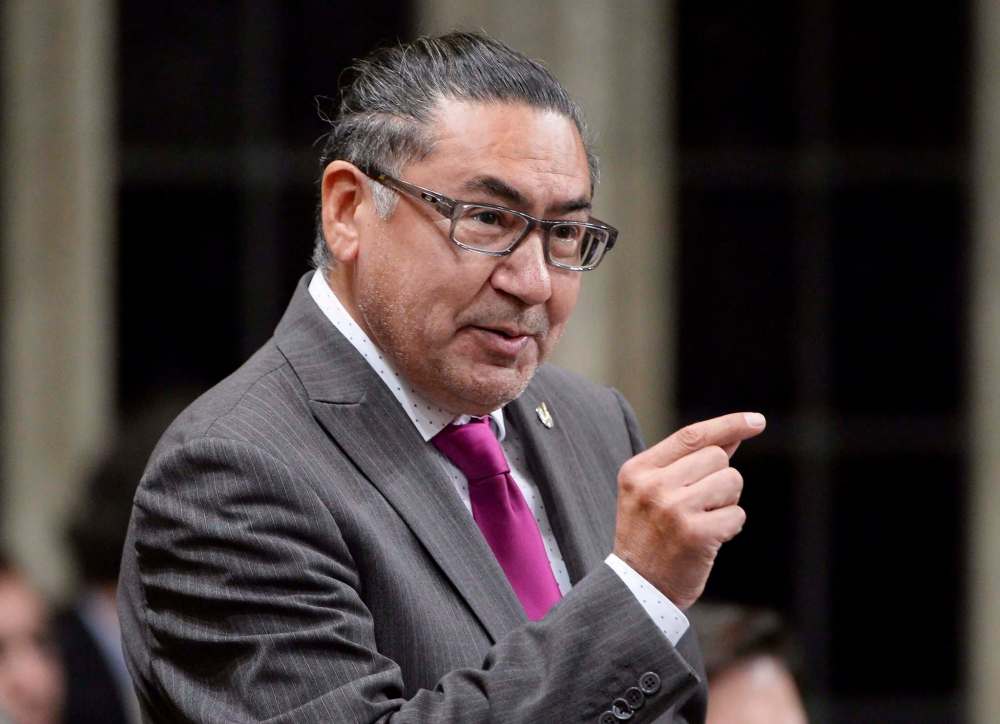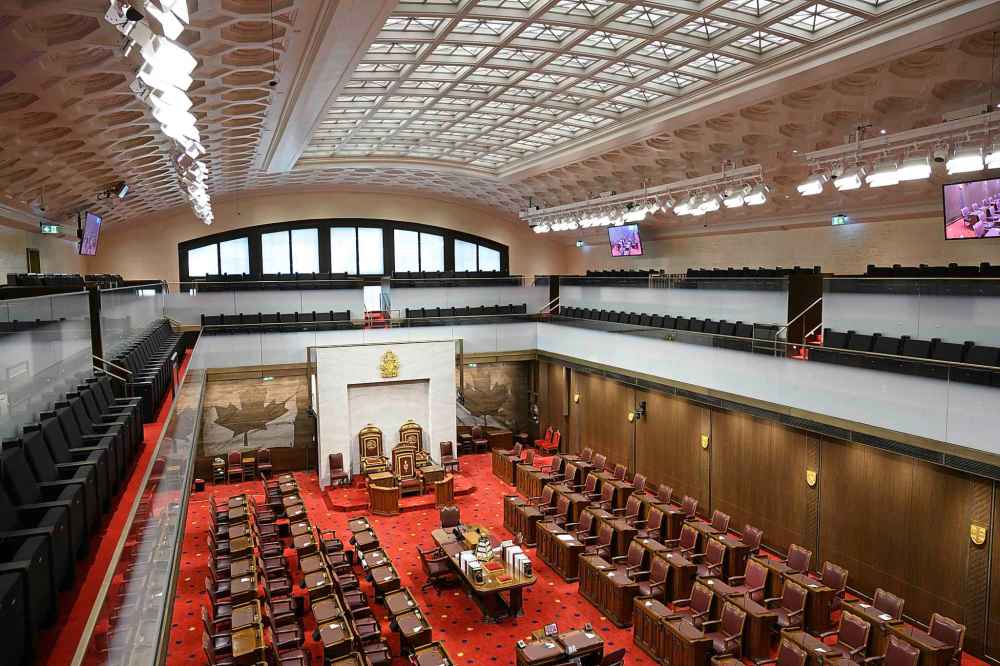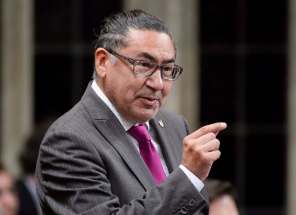Time running out on crucial Indigenous rights bills
Read this article for free:
or
Already have an account? Log in here »
To continue reading, please subscribe:
Monthly Digital Subscription
$0 for the first 4 weeks*
- Enjoy unlimited reading on winnipegfreepress.com
- Read the E-Edition, our digital replica newspaper
- Access News Break, our award-winning app
- Play interactive puzzles
*No charge for 4 weeks then price increases to the regular rate of $19.00 plus GST every four weeks. Offer available to new and qualified returning subscribers only. Cancel any time.
Monthly Digital Subscription
$4.75/week*
- Enjoy unlimited reading on winnipegfreepress.com
- Read the E-Edition, our digital replica newspaper
- Access News Break, our award-winning app
- Play interactive puzzles
*Billed as $19 plus GST every four weeks. Cancel any time.
To continue reading, please subscribe:
Add Free Press access to your Brandon Sun subscription for only an additional
$1 for the first 4 weeks*
*Your next subscription payment will increase by $1.00 and you will be charged $16.99 plus GST for four weeks. After four weeks, your payment will increase to $23.99 plus GST every four weeks.
Read unlimited articles for free today:
or
Already have an account? Log in here »
Hey there, time traveller!
This article was published 17/04/2019 (2430 days ago), so information in it may no longer be current.
Tick, tock. The clock is counting down on the current Parliament, and three significant pieces of legislation that would change the lives of Indigenous Peoples are facing the possibility of an end-of-session death knell.
Parliament ends its business in June, barring a forced and unlikely extension. This means any bill that doesn’t receive at least third reading will not receive royal assent and will therefore die on the legislative floor. All three of the bills in question are being read by Senate committees this week.
The first is Bill C-91, which would create an office of the commissioner of Indigenous languages to protect and promote those languages. With more than 80 of the 90 Indigenous languages in Canada endangered, this legislation would provide support to an already dire linguistic and cultural situation.

Bill C-92 focuses on First Nations, Inuit and Métis children, youth and families, and proposes to hand jurisdiction over child welfare to First Nations, Métis and Inuit governments. This “Indigenous-led” system would take Indigenous children housed in provincially governed child-welfare systems and put them in service agencies run by Indigenous leaders who must commit to focusing on their cultural and unique needs.
There is a solid chance that C-91 and C-92 will pass and, in anticipation, both have future budgetary commitments from the Trudeau government.
The third piece of legislation, however, is the game-changer. Bill C-262 is designed to ensure the laws of Canada are in harmony with the United Nations Declaration on the Rights of Indigenous Peoples (UNDRIP), providing a framework for the federal government to adjust its laws, policies and operational practices to respect the basic rights of First Nations, Métis and Inuit peoples.
C-262 wouldn’t change Canada overnight, but it would have long-reaching effects. Canada has a constitutional obligation to recognize and affirm Indigenous and treaty rights, but this legislation would force the country to actually implement them.
The problematic and divisive Indian Act, for example, would have to go as it would contravene the declaration’s recognition of Indigenous Peoples’ right to “freely determine their political status and freely pursue their economic, social and cultural development.”
If the government passes C-262, it could, in effect, implement C-91 and C-92 by default, as UNDRIP affirms Indigenous Peoples’ right “to autonomy or self-government in matters relating to their internal and local affairs.”
C-262 has received countrywide support from organizations as varied as the Mennonite Central Committee, Amnesty International and the Assembly of First Nations.
Due to political posturing and stalling by those fearful of its changes, C-262 is not likely to make it.

Speaking to the online newsmagazine the Tyee, Conservative Sen. Dennis Glen Patterson, the bill’s official critic in the Senate, said Conservative senators are not deliberately delaying the bill. Mr. Patterson accuses the Liberal government of delaying it in Parliament before referring it to committee.
It’s worth pointing out that though the Liberals promised in 2015 to implement UNDRIP, C-262 is actually a private member’s bill put forward by NDP MP Romeo Saganash.
Whatever the reason for the delay, time is running out. It’s hard to imagine this session of Parliament would be extended, right before an election campaign, for the sake of a private member’s bill, no matter how much support it has.
So while small changes may be made on Indigenous languages and child welfare, the bill that would really change Indigenous Peoples’ relationship with Canada could be sacrificed for the sake of politics.











